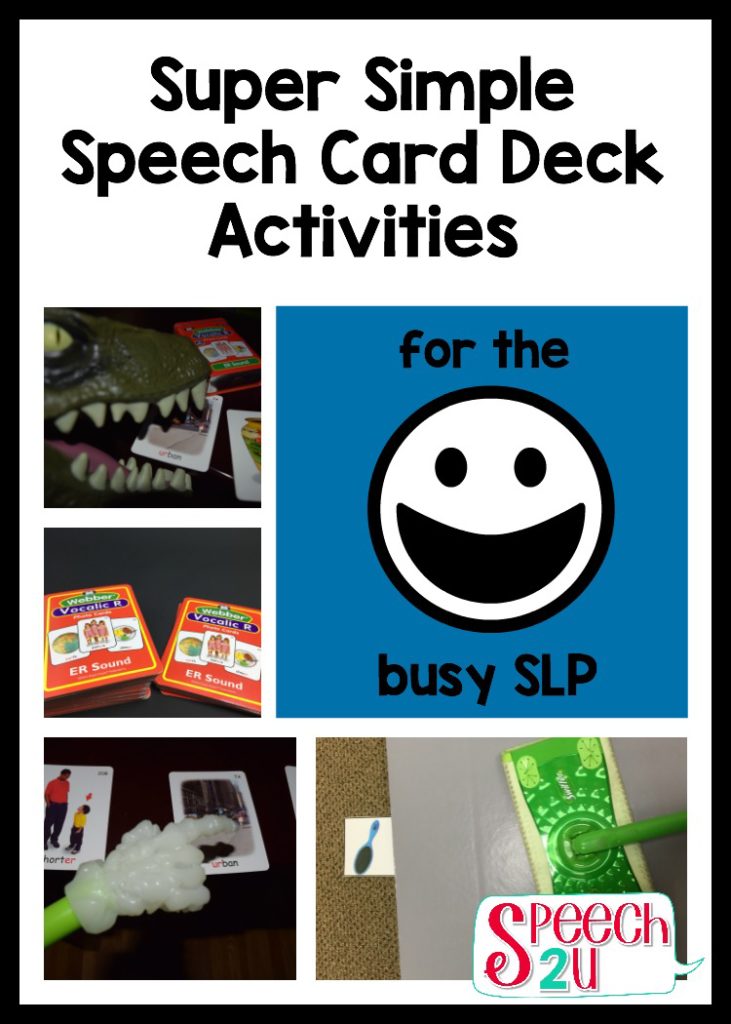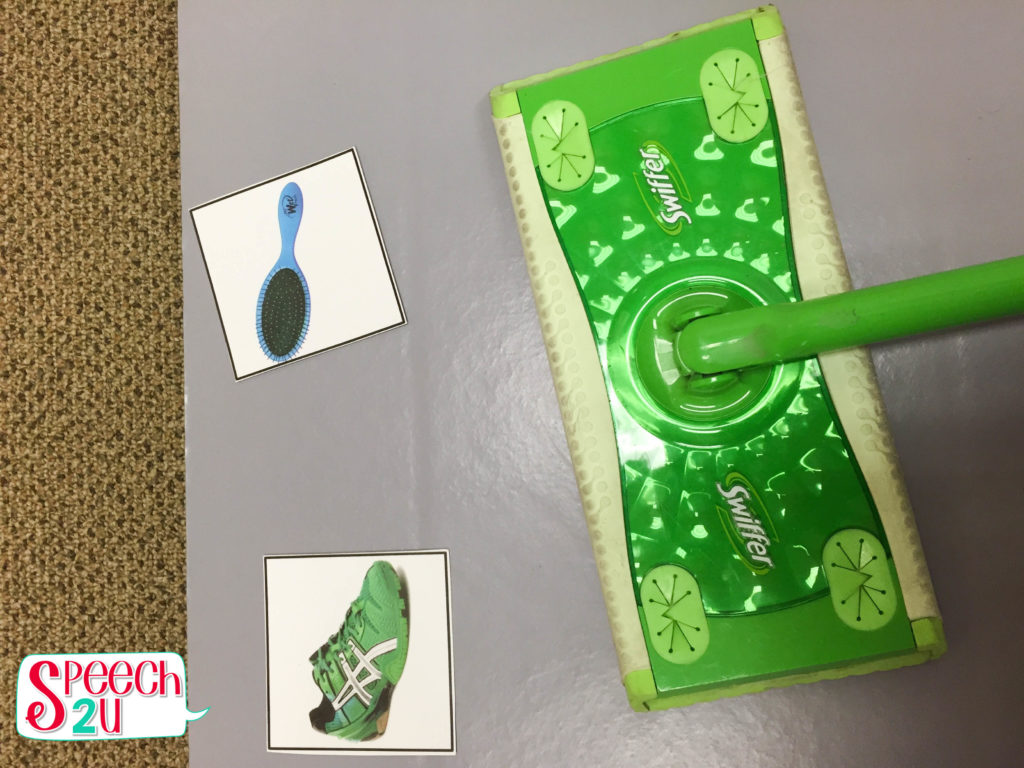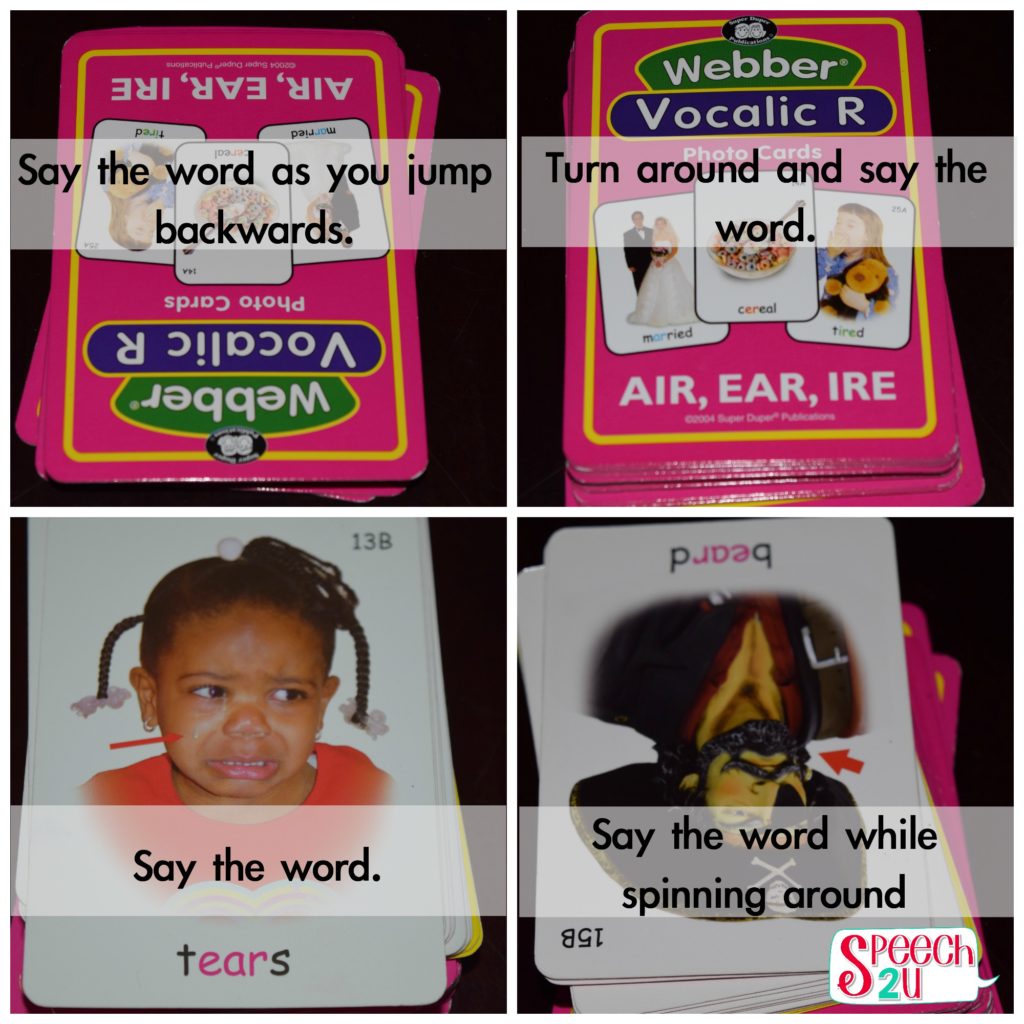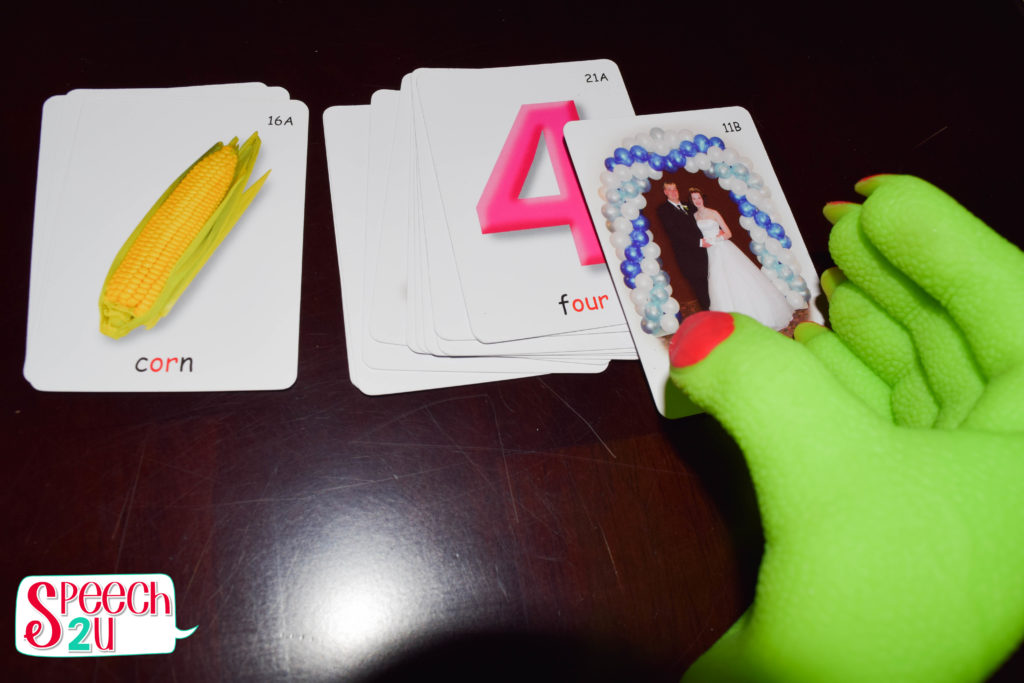
Quick and Easy Speech Therapy Card Deck Activities
Pick it up.
Buckaroo and Mousetrap are two of my least favorite speech therapy games. Mousetrap because it takes the entire session to set up the game. Buckaroo meets my criteria for being a short game and kids can practice speech cards to earn items to place on buckaroo. But it just seems like he is always kicking the stuff off. This game actually happened by accident. We were playing the game and I had my speech cards behind the feet.
Throw it on the Floor:
Sure you have to pick them up at the end. Try squatting when you do it to get a workout in. This game is played exactly as it sounds. Have them say their words and then throw the cards on the floor when once they have repeated them 5 times. I’m pretty terrible to my cards, I’ll slide them down on slide, whip them frisbee style against the wall, and try to shove them under the door to get rid of them. Increase the difficulty by practicing them in phrases like:
- “I’m tired of saying ______,”
- “______-get out of here.”
- “How many times do I have to say, ______.”
Who has a Taller Pile
High Fives or Dab It:
So easy-just say the word and then give a high five. Sometimes I change up my high fives to make them more “complex.” Or just dab after you say each word. My son does celebratory dabs throughout his day. It cracks me up. Sometimes I think about how I could do that in my daily life. Finished a progress report DAB! Balanced my Checkbook DAB! Saved money on cartwheel-DAB! Yes-that’s how my brain works.
Step on it:
I love to play this with my little ones. I had one child who was working on CVCV shapes. I pulled out a few cards to practice within between some toys. I had the child step on it and I made a raspberry noise. Then we both giggled. My professional term is raspberry noise-they knew it was a fart noise. And it was hysterical. So much so that we had to do cards for the next three weeks.
Clean it up:

I had a friend who really liked cleaning products. So we would put two cards on the mat after we practiced them and they would use a swiffer mop to push them off of the mat.
Food or Not Food:
Perfect for carrier phrases.
Have the client or student say, “Eat _________” or “Don’t eat ________.” while turning over card deck pictures. Make sound effects based on what they chose.
For example, if they say “Eat cake”, I make eating noise and say, “Mmmmm.” If they say, “Eat Coat,” I start to make wrenching noises. For some kids I have them say say, I eat ____ with all of the cards. I act very concerned when I hear they eat non-edibles. Be prepared for fits of giggles.
You Said It:
My Cards/Your Cards
Target even more carrier phrase
Use any card deck. Explain the rules to your student: “You can tell me who gets which card by saying ‘My ______ ‘ or ‘Your _______.’Whoever has the most cards at the end of the deck wins. Act increasingly outraged as the child continues to say “My ________.”
Switcheroo:
Perfect activity for when your card decks are messy and out of order
In this activity, you change places every time a card is facing upside down or backwards. I start by explaining the rules: “I’m going to turn over a card and you have to say it. If the card is facing the wrong way, say ‘________ is turned around. Time to switcheroo.’ ” Switch chairs with the client. This game is more fun if you have a different chair then the child. I like to complain about how small their chair is and how it is giving me back pain. Sometimes I beg them to give me my comfortable chair back.
Messed up Card Deck

Another great activity for messy card decks.
For this activity, you don’t have to worry about how organized your deck is.
Here’s how to play. You are going to be flipping over cards. Your students have to say the word/phrase sentence while doing an action. They pick the action based on the card’s orientation.
What do you Want/Tell my your Favorite:
Use this when moving from imitation to expressive productions.
Lazy Memory:
Another good one for when your card decks are out of order.
Grab It:
Robot Hand and Pointers:



